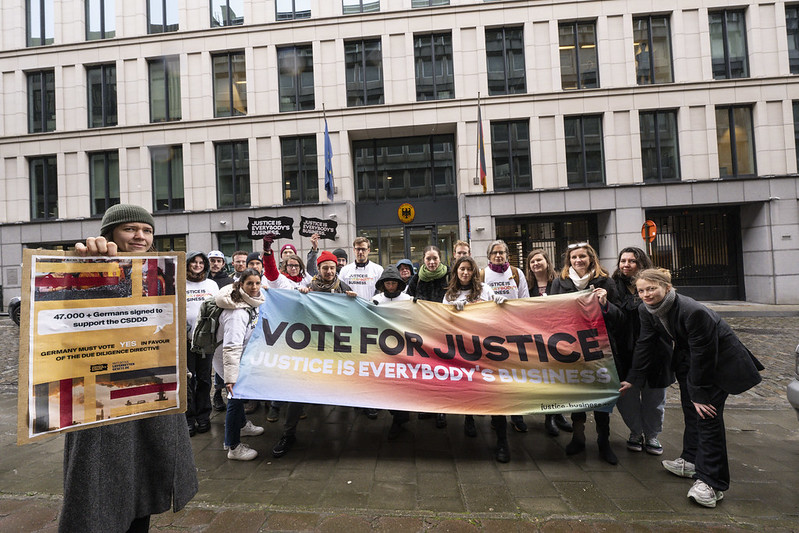NGOs challenge European Commission’s undemocratic ‘Omnibus’ process
A coalition of seven NGOs today lodged a formal complaint with the European Ombudsman, condemning the undemocratic, untransparent and rushed way in which the European Commission has developed the Omnibus proposal.
The Omnibus proposal seeks to significantly water down key EU sustainability laws that were recently adopted, including the Corporate Sustainability Reporting Directive (CSRD) the Corporate Sustainability Due Diligence Directive (CSDDD) and the EU Taxonomy Regulation.
NGOs deplore that the process leading to this proposal was deeply flawed, enabling a small group of industry interests to take control and push for the deregulation of key sustainability laws.
ClientEarth, Anti-Slavery International, Clean Clothes Campaign, European Coalition for Corporate Justice, Friends of the Earth Europe, Global Witness, Notre Affaire À Tous and T&E said:
“We are contesting the Commission’s rushed dismantling of three key pillars of the Green Deal – including laws meant to improve the environmental and human impacts of global trade – a process that completely disregards people and nature’s rights.
“The Omnibus proposal was made without any public consultation, sidelining civil society, with a lack of evidence or environmental and social impact assessments, and with a primary focus on narrow industry interests. This reckless move not only weakens sustainability rules but also damages public trust in the EU’s democratic foundations.”
More specifically, the NGOs accuse the Commission of:
- Failing to properly gather evidence and assess the environmental and social impacts of amending corporate laws designed to protect citizens in the EU and beyond;
- Sidestepping broad consultations to favour closed-door meetings dominated by oil and gas industry interests (the content of which were revealed only through press leaks);
- Failing to assess whether its proposal aligns with the EU’s climate-neutrality target – in breach of its obligations under the European Climate Law.
- Besides being at odds with the EU’s core democratic values and environmental goals, NGOs warn that the Omnibus could also undermine EU's economic stability and the competitiveness objectives it is supposed to help.
- The coalition added: “This so-called simplification does nothing to enhance competitiveness, the European Commission is ignoring both evidence and science.
“Strong sustainability laws like the CSDDD and CSRD are key to the EU's competitive advantage in a global market where consumers and investors increasingly demand responsible corporate action. We have seen time and time again that vague corporate promises aren't driving the change we need. Weakening environmental and human rights requirements is a step in the wrong direction."
NGOs are calling on the European Parliament and Council to reject the Omnibus proposal.
